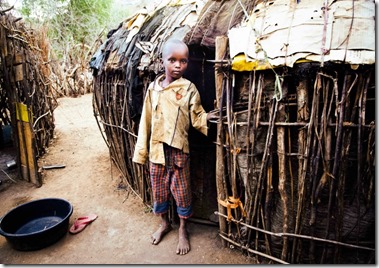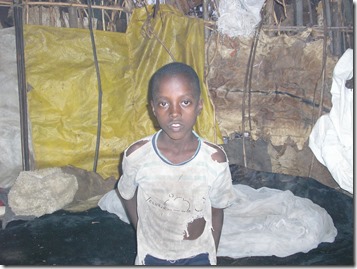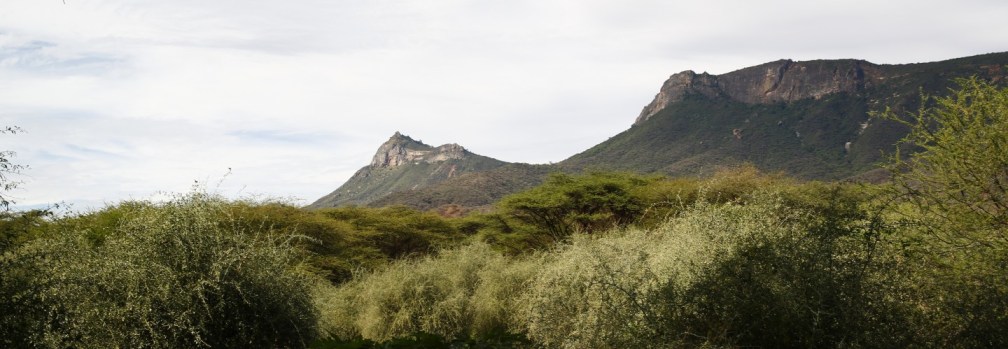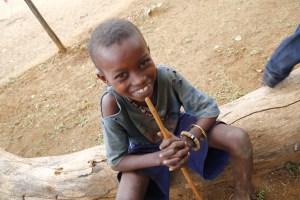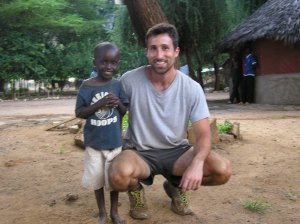I have decided to blog for the first time in almost exactly eight years, when, as one can see below to my embarrassment, I blogged a mere five times—mostly while I was in Africa for a span of ten weeks. Fortunately, I have upgraded the blog’s title from the hyper-lame “RGR Blog” (my initials) to the super-cool “Verita in Amore,” which in Italian means truth in love. I tend to think that in another eight years I might be embarrassed by both the new title and at least some of the forthcoming posts, but, hey, you live and you learn.
I am driven to blog primarily for three reasons. First, I enjoy writing and believe I am relatively good at it. Blah.
Second, and more importantly, I am striving to move past what many Christians commonly refer to as “fear of man.” For those of you unfamiliar with this phrase, it is similar to but distinct from the phrase “not giving a *&#@ about what others think,” which is more colloquial yet also inherently callous. (Interestingly, this latter phrase has an impressive 380 million Google search results, yet “fear of man” has an astounding 5.19 billion Google search results. So, perhaps it is more colloquial (and, come to think of it, genderly problematic for some) than I originally thought.)
My desire to overcome fear comes at a time when arguably both “fear of man” and “not giving a *&#@ about what others think” are on the rise—neither of which is good for society. On the one hand, with respect to fear of man, a 2019 Pew Research poll found that an alarming 83% Americans are at least somewhat uncomfortable talking about politics with someone they do not know well. Forty-eight percent (48%) are more than somewhat uncomfortable. Similarly, a 2020 Cato Institute/YouGov poll found that 62% of Americans (and 77% of Republicans) have political opinions they are fearful to share. Fear abounds in this country—not just of speaking one’s mind, but of COVID-19, of the opposing political party, of deteriorating mental health, and even the whiff of civil war for some. For an overview of how social media, for example, is profoundly exacerbating these fears, see The Social Dilemma (2020 Documentary/Docudrama).
On the other hand, with respect to not giving a rip about what others think, just look at the way an increasing number of people tweet and politicians/pundits talk, for example (e.g., Rep. Rashida Tlaib (D-MI) saying at a political rally, “We’re going to impeach this motherf*$#er!” with respect to former President Trump; or the fact that just days ago the N.J. Democratic State Committee released attack ad that features several people dropping F-bombs after they are told that a Republican candidate for governor once attempted to ban swearing in his home town). Also, consider that one of the most reviewed books on all of Amazon (with a staggering 56,578 ratings at present) is titled “The Subtle Art of Not Giving a F*ck.” Here’s a short excerpt, “You and everyone you know are going to be dead soon. And in the short amount of time between here and there, you have a limited amount of f*$#s to give. Very few, in fact. And if you go around giving a f*$# about everything and everyone without conscious thought or choice—well, then you’re going to get f*$#ed.” (Symbols added). There is some truth there, but if it doesn’t reek of callousness, I don’t know what does.
Now, as a straight, cisgender, conservative, Protestant Christian white male who resides in the highly progressive Washington metropolitan area, many would say I have good reason to be fearful of speaking my mind. Others might argue that my intersectionality, or lack thereof, leaves me highly privileged and with no reason to fear. Whatever the case may be, I am in fact afraid to speak my mind. I always have been. But “[d]o the thing you fear, and the death of fear is certain,” claimed the famous American philosopher/abolitionist Ralph Waldo Emerson. That’s not necessarily true, but, in his defense, he was an essayist, not a lawyer. 🙂 “Do the thing you fear, and the reduction of fear is almost certain” is more accurate (but less punchy). Fear, in essence, is a cage. I think to a scene in Lord of the Rings: The Two Towers in which Aragorn asks Eowyn, “What do you fear, my lady?” She responds, “A cage. To stay behind bars, until use and old age accept them, and all chance of doing great deeds is gone beyond recall or desire.” This moves me to emotion as I reflect on it.
Third, and most importantly, I am disturbed by both the increasing difficulty in our media and culture of finding truth—actual, objective truth—and the ease with which one can find highly polarized, unrighteously angered, dogmatically asserted half-truths or outright lies. Over the last few years, Pontius Pilate’s famous retort “What is truth?” (which was in response to Jesus’s claim that he “came into the world to testify to the truth”) regularly comes to mind. (Jn. 18:38). Well, what in fact is truth? In our country, the mainstream media will tell you it is one thing. Former President Trump’s base will tell you it is another thing altogether. The two sides seemingly differ drastically at almost every point. For the last ten or more years, our country (and world) has been described as postmodern—a hallmark of which is that truth is relative, socially- and historically-conditioned, and far from absolute or universal. Up until recently, I would have questioned that descriptor and thought, “Common, everyone believes in actual truth. Just look at the way people argue with each other: ‘I’m right, you’re wrong.’ ‘To be anti-abortion is misogynistic.’ ‘To attempt to get a transgender youth to identify with their biological sex is transphobic.'” These are all absolute truth claims, no? But now I can see some truth in the idea that our country is post-modern in the sense that there is very little consensus about anything. We don’t have much shared truth. We have “alternative facts” and “your truth” and “my truth.”
So again, what is truth? While, in my opinion, the culture has begun to engage in an Orwellian use of language, Merriam-Webster, to its credit, still defines truth first and foremost as, “the body of real things, events, and facts: actuality.” Oxford Languages defines it first as, “the quality or state of being true.” These definitions convey the idea of objective, absolute truth. Then again, phrases such as “my truth” and “your truth” have over 7 billion Google search results apiece. (To put this in context, “God” only generates 9.59 billion search results). These terms (“my truth” and “your truth”) obviously connote a subjective element. “My truth” for one person may be that immigrants are flagrantly taking over this country, depriving people like them of jobs, and need to be stopped, detained, and sent back at all costs. Meanwhile, “my truth” for the next person may be that the U.S. is a systemically racist, xenophobic place that is worse off than most immigrants’ home countries in many respects and needs to be rebuilt from the ground up. Both may be speaking falsities, but both are not speaking actual truths.
In closing, over the coming weeks, I will be blogging on several subjects (some of them culturally sensitive) that are of particular interest to me like: Christianity, social issues, the supernatural, and potentially a host of other riveting topics. I hope to write circumspectly, yet straight-forwardly; boldly, yet humbly (knowing that I will occasionally get it wrong); and lovingly, yet unabashedly. As Jesus’s disciple John exhorted us, “let us not love with words or speech but with actions and in truth.” (1 Jn. 3:18).
Go to minute marker :37 in the video below for the LOTR exchange between Aragorn asks Eowyn quoted above. It’s inspiring.

